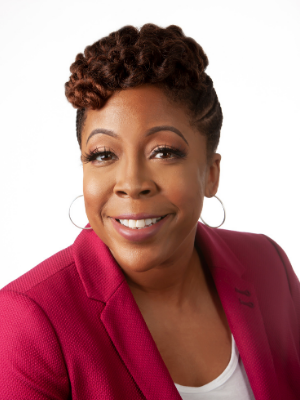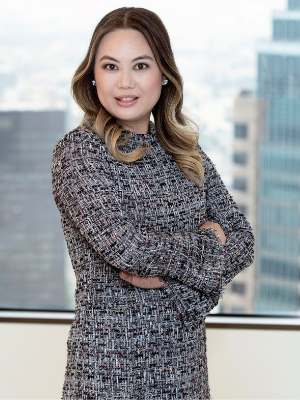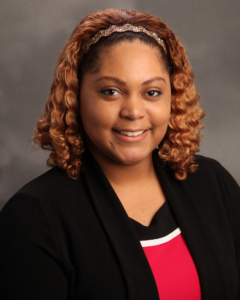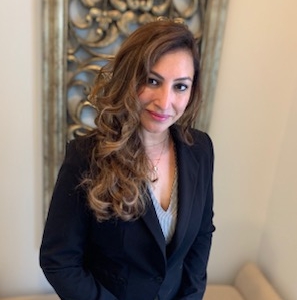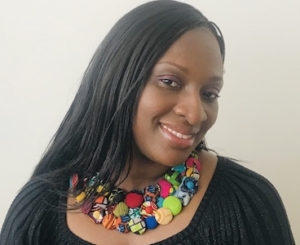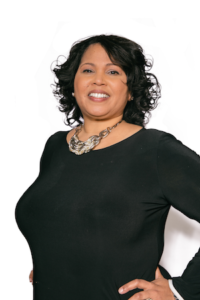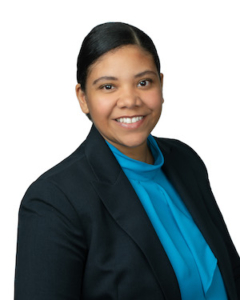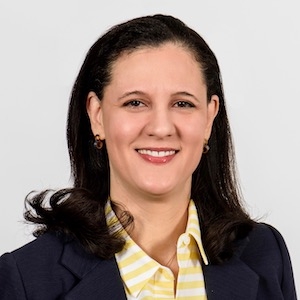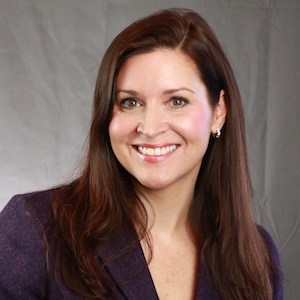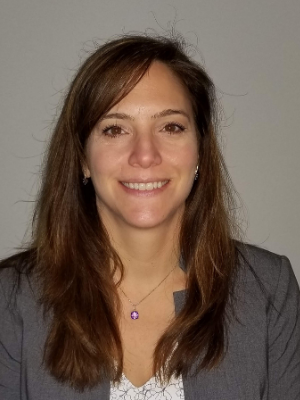 “The most important thing is to listen to your gut. Whatever it is, the voice in your head, there’s something that just drives you,” says Leah Meehan. “I have zero regrets in life because I’ve made every decision I had to make with the best information I had at the time.”
“The most important thing is to listen to your gut. Whatever it is, the voice in your head, there’s something that just drives you,” says Leah Meehan. “I have zero regrets in life because I’ve made every decision I had to make with the best information I had at the time.”
Meehan also talks about translating between worlds, the most important time you’ll ever invest in, diversifying your personal board of directors and creating balance through a fake commute.
Listening To Your Gut
With a master’s degree in criminal justice from Boston University, Meehan’s path threw a curveball. After about five years of working as a Correctional Program Officer, Meehan knew that civil service was not for her.
She did not resonate with the annual cycle of indiscriminate pay raises for which performance was irrelevant. She was one of four women out of a class of 84, and often had to remind herself that she had earned her place there as a woman, just like everyone. But what leaving really came down to was the undeniable knowing in her gut and heart.
“I started talking about leaving, and people thought it was crazy because the retirement package is so good and the stability and pay are good,” she recalls. “But it was one of those things in my gut that I knew I had to do, no matter, and I’m so glad I did.”
Once she first crossed to the private sector with Fidelity Investments, Meehan was involved in employee background investigations and from there she moved to analyzing behaviors related to money laundering. From there, she eventually moved towards her current focus on data governance, now with State Street.
Translating Between Two Worlds
With data and analytics becoming an even bigger part of our lives, Meehan’s work is moving and expanding, faster than ever.
She loves the ability to reach through the hard evidence of the data to prove or disprove something that the client perceives, sometimes opening up a whole area of insight they had not even considered.
“I’m a visual person and when you visualize data, it’s amazing how that can get across to people in different ways and in different languages. It doesn’t matter if you’re an introvert, an extrovert, a data person or not,” Meehan says. “When you see a visualization you know what that means—there is an art to that.”
To craft a compelling story for her clients with the data, she has to be able to listen closely and bridge the numbers with what is important to them.
“If you’re not gearing your data towards your audience, it can be totally lost on them, or falsely interpreted,” says Meehan. “You have to understand what the client is doing, what’s important to them, what their end goals are, what their process is, how they view success or failure and then you need to interpret that in the data.
“I think my job over the last 15 years has developed to be an interpreter between the technical and the business side,” she continues. “That middle section is where I live.”
Investing In Fostering Connection
Meehan feels that the most valuable mentor-mentee relationships she has developed over the years are those that came together informally, through meeting casually and recognizing a connection.
“I’ve also been lucky throughout my career to have several people sponsor me, and I mean they would go into a room and fight for me—a job, a raise, a promotion, taking on a new project,” she says. ”I’ve been fortunate to have that, and I’ve also worked hard at fostering those relationships.”
Meehan recognizes that with work to do and often pending deadlines, dropping everything to go for a half hour coffee can sometimes feel like time not well spent.
“But to me, it’s the most important time,” she iterates. “If you make those personal connections with people, it will help you down the road, personally and professionally.”
Even now, she finds nothing more rewarding as a manager than watching her team members grow and advance to dreams they have aspired to, no matter where it might take them.
“I encourage that, and to think I had a small part in their progress makes me happy,” reflects Meehan. “When I see my team doing well, spread out over the years at various firms doing what they love, and still coming back to me to let me know how they are or to ask for references, that’s what makes me the most proud.”
Diversifying Her Board of Directors
Meehan is a big believer in cultivating your own personal board of directors—the people that you can call on as advisors from a personal and professional standpoint. Recently, she’s been focusing on bringing in a greater diversity of perspectives to bounce ideas off of.
“I realized the people I go to often are very similar to me, so when I go to them for advice, they’re probably going to give me what I want to hear,” she observes. “So I have one person on my board who has been a friend for a long time, and he tells me ‘how it is’. He does not hold anything back, to the point it sometimes upsets me, but he’s helping me to move ahead; I need more of those people, to diversify my board.”
Creating Balance in Covid Times
Certainly the remote working office has impacted office dynamics, including going from wearing a suit everyday to yoga pants. But the stronger impact for Meehan has been on her work-life balance.
“In the beginning of Covid, we thought we were the lucky ones because all of our friends with kids were really struggling with homeschooling,” says Meehan, speaking for her husband and herself. “But then we went through a period where we worked more online, and our work-life balance got thrown completely off.”
Meehan realized that her friends with children at least had some consistent schedule of making dinner, putting kids to bed. Her husband and her did not have the external pulls on attention, so could work into the night and barely make dinner.
“We had to take a step back and create some boundaries,” says Meehan.
In her remote home office in Boston, she has now created a “fake commute” at both the beginning and end of her workday to mimic the transition of her twenty minute walk to work—she goes on a walk and may do yoga or meditation. She blocks off an hour in the middle of the day as well for herself, and has dinner with her husband.
Together they share a passion for travel, have summited Mount Kilimanjaro a few years back and are bound for Antarctica in 2023.
By Aimee Hansen

